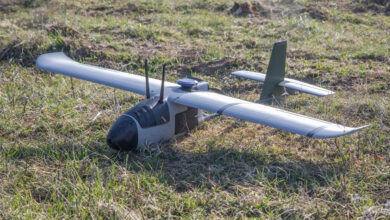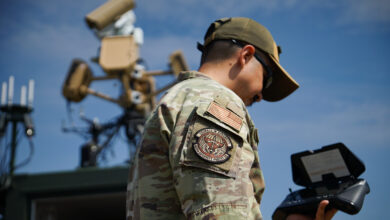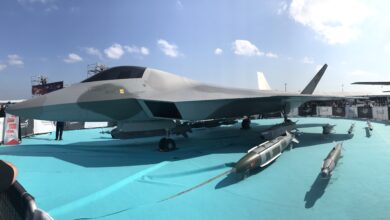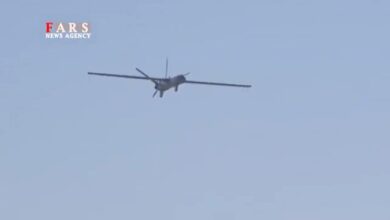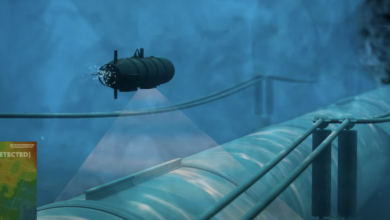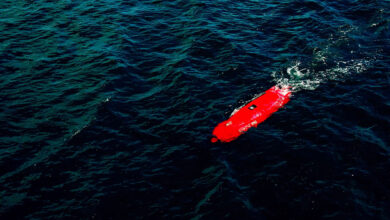Turkish defense company STM has developed technology that allows small tactical drones to operate in GPS-contested environments using artificial intelligence and “sophisticated computer vision techniques.”
The KERKES Project supports rotary-wing drones as well as fixed-wing drones.
The technology uses AI deep-learning capabilities and object recognition techniques that allow unmanned vehicles to navigate without relying on GPS. During missions, the drones can also compare a loaded map with available on-field data.
Drones using KERKES can operate at night and through multi-domain environments without being interrupted by electronic warfare threats, including GPS jammers.
‘Game-Changing Technology’
“With this technology, which only a few countries are working on, our tactical mini-[unmanned aerial vehicles] will be able to carry out missions without being affected by enemy electronic warfare threats such as GPS jammers,” Turkish Defence Industry Agency President Dr. İsmail Demir said.
“This critical capability … will serve as a deterrent for our army in homeland defense, and will be a game-changing technology in combat environments.”
İHA’larımızın GPS olmayan sahalarda da görev yapabilmesini sağlayan #KERKES Projesi’ni başarıyla tamamladık ve teslim ettik. Dünyada sayılı ülkenin üzerinde çalıştığı bu teknolojiyle,mini İHA’larımız,GPS köreltmesi gibi elektronik harp tehdidinden etkilenmeden görev ifa edecek. pic.twitter.com/Fkrey2atSS
— İsmail Demir (@profismaildemir) October 9, 2022
The navigation capability can also be integrated into naval and land vehicles, according to STM General Manager Özgür Güleryüz.
“STM had applied its national engineering capabilities to the introduction of this technology to Türkiye, as a field in which only a few countries are engaged,” he explained.
“We are always ready to meet the advanced technology needs of our soldiers in the field.”



